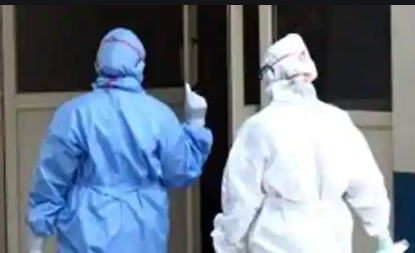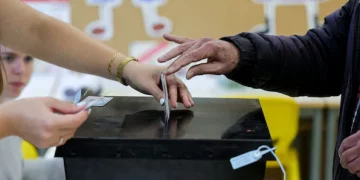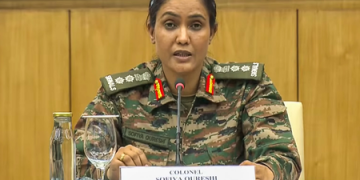Jagdish Rattanani
In the big cities of India, and less prominently in the smaller towns, private hospitals are now imprinted in the public mind as mercenaries ready for the kill. The signs are everywhere and the collapse is almost complete. These modern-day glitzy edifices which go often by the euphemism of specialty hospitals aren’t hesitating to bargain for beds, turn away the sick and show up the ugliest side of humanity in a time of medical crisis. It is true that not all are playing this game, but there are those that have succeeded in tarring the entire private health care system in the country.
Delhi Chief Minister Arvind Kejriwal put it plainly and succinctly: “First they say there are no beds. Then they say give us 2 lakhs, 5 lakhs and 8 lakhs for a bed. What is this if not the black marketing of beds? It will take some time for us to break this mafia.” In Maharashtra, where capital Mumbai is reeling under the pandemic, Chief Minister Uddhav Thackeray moved last month to cap charges in private hospitals after shocking cases of outrageous charges came to light. Promptly, the prominent city hospitals run by well-connected and powerful private individuals, among the Who’s Who of Mumbai, held a meeting and sent their reps asking that he re-consider the cap. In June, the chief minister said private hospitals should reserve 80 per cent of their beds for COVID patients, and asked state officials to monitor this execution.
The actions in two of India’s prominent cities by two very different leaders coming from different political backgrounds and fighting a pandemic at its peak tell us just where India’s healthcare system has landed. On the one hand, those who can afford to pay, demand the right to keep private hospitals for the moneyed, with all kinds of high-end systems and procedures that give India the flavour of a nation with some of the most-advanced healthcare facilities in the world. This is the story that brings in “medical tourism” and attracts a large number of international visitors who choose to be treated in India at a fraction of the cost they would pay in advanced economies. The system is encouraged by special concessions to treating hospitals, a visa programme for medical services and a welcoming approach that overtly diverts subsidies and resources at the direct cost of the poor in India.
On the other hand is the under-funded and under-supported public health care system that must attend to a far larger number of patients but struggles to cope with infrastructure that is crumbling and equipment that is often outdated. A simple fact helps understand this difference: At the super specialty hospitals, it is possible to get a bed with a view, attendants on call and a hotel-like lifestyle while the patient recovers. At public hospitals, the patients and their relatives queue up again and again – for forms, appointments, admission and medicines. Then, as their phones die out, they rush to queue up outside a paan shop that runs a side business in allowing relatives to recharge their mobile batteries. This writer has personally witnessed this at a prominent Mumbai public hospital years ago.
Yes, this was the situation in the best of times. It was not created by the pandemic. The pandemic has only added new strains where it is no longer possible for governments to overlook the glaring violations that have allowed many of these hospitals to build and thrive on public land given at throwaway rates and then use that property to create a system that is prohibitively expensive and necessarily excludes the vast majority from seeking healthcare in these institutions. Essentially, this is public money creating private privilege.
Afterall, it is the 2017 National Health Policy that noted right in its introductory paragraph that there are “growing incidences of catastrophic expenditure due to health care costs, which are presently estimated to be one of the major contributors to poverty”. Catastrophic household health expenditure is defined as “health expenditure exceeding 10 per cent of its total monthly consumption expenditure or 40 per cent of its monthly non-food consumption expenditure”, which the policy says is “unacceptable”.
In India, out of pocket expenditures (OOPE) as a percent of total health expenditure, which reports expenditures directly made by households at the point of receiving health care, is more than 60 per cent. This indicates lack of financial protection available for households towards healthcare payments. It is no different in the case of Covid, save that many cases are coming in bunched together and the picture that emerges is very ugly.
This is the normal that India has come to live with, representing a crisis in India’s health care, a split down the middle where the elite clashes with the aam janta and an entire system corrupted by a culture that talks the language of money, connections and power, not health care.
As a senior official who has worked in the public health sector in New Delhi put it: “Strengthening the public systems for health care is the answer to curbing the excesses of the private sector. I would not call the private players dacoits. At best they are rent collectors. The arena was handed over to them and they charge for the conduct of their theatrics.” The picture in the case of hospitals that function as trusts is a little different, with glaring disparities between the paid and the free sections.
This is a long-term problem that will require fixing in “peace” time. Many solutions have been proposed, the most obvious of which is to increase India’s government expenditure on health as a percentage to GDP from a low of 1.5 per cent to 2.5 per cent by 2025, as envisaged in the National Health Policy, 2017. We will also need to define health as an essential service, with caps on fees and a resistance to the shareholder model that talks of investments, returns, mergers and acquisitions but not the quality of health care, irrespective of the ability to pay. India will also need to celebrate models that have built principled private sector institutions that work on a cross subsidy model and yet ensure that no one who turns up at their hospital goes without quality treatment.
But what can be done in a time of war, which is what the pandemic presents? There is no escaping that hard steps are needed. The government will have to steel itself to make an example out of the wayward in the healthcare sector. Takeover those that are gross violators, freeze their accounts and demonstrate to the people and the entire health sector that the state is committed to holding providers of healthcare accountable for their actions. Anything short of this means that a bigger disaster awaits. As lobbies build, politics plays out and the response is delayed or mired in controversies so that the message itself will be lost. The merchants of death must be stopped now.
The writer is a journalist and faculty member of SPJIMR. The Billion Press.






































